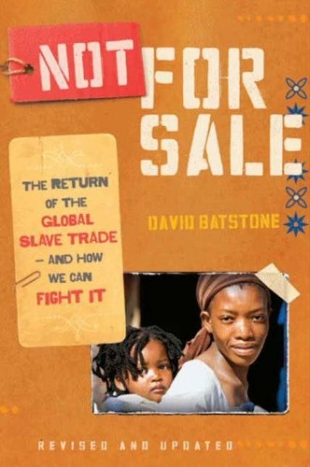"One shining star of global abolition work is the Washington, D.C.-based organization Free the Slaves. Kevin Bales established the organization in 2000 to educate the American public about the existence of slavery and to push governments to enact and enforce antislavery laws. The organization reflects the ethos of its founder. Kevin speaks about slavery in a style that is local yet global, strategic yet nonpartisan. Moreover, Free the Slaves consistently produces the most insightful and accurate research on trafficking networks available anywhere.
"Between January 1998 and December 2003, Free the Slaves conducted a research project in collaboration with the Human Rights Center at the University of California, Berkeley. The final report, published under the title Hidden Slaves: Forced Labor in the United States, thoroughly documents the nature and scope of slavery inside American borders. The investigation exposed a number of noteworthy trends:
• "Foreigners are trafficked into the United States from at least thirty-five countries. Most victims originate in China, followed by Mexico and then Vietnam.
• "The states with the largest incidence of slavery are California, Florida, Texas, and New York.
• "Mexican, eastern European, and Asian crime syndicates run extensive trafficking rings inside the United States. They particularly target migrant groups.
• "U.S. citizens and permanent residents import thousands of domestic servants into this country as slaves.
• "Seventy-five percent of all New York apparel manufacturing firms are sweatshops, using forced labor or paying workers below minimum wage.
• "Forced labor is most prevalent in five sectors of the U.S. economy: prostitution and sex services (46 percent); domestic service (27 percent); agriculture (10 percent); sweatshop/factory work (5 percent); and restaurant and hotel work (4 percent).
"It is hard for many Americans to believe that slavery still exists on a grand scale in the world, let alone that it may have a foot-hold in their community. Yet there is no denying the fact that tens of thousands of people labor each day in the United States without pay and under the threat of violence. Because forced labor is often hidden in unregulated work environments or where cheap labor is the norm, most Americans will walk by an incidence of slavery and pay it no notice."
